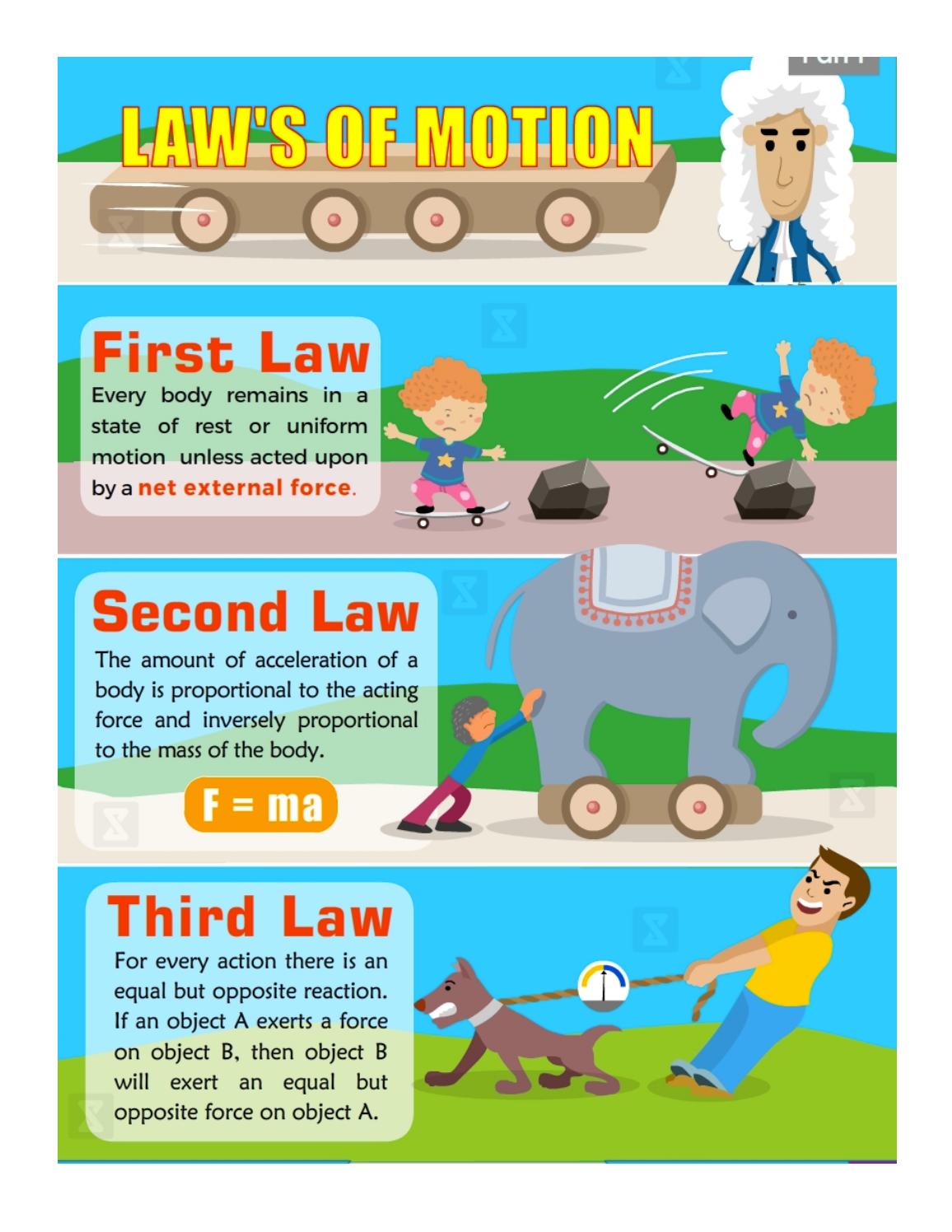
NEWTON’S LAWS IN OUR LIVES
Newton was an English scientist and philosopher that discovered the laws of attraction and many other laws that regulates the modern Physics, one of his most famous laws is:
- «For Every Action, There Is an Equal and Opposite Emotional Reaction”, where an object that collides with another object heading in the opposite direction will result. This may seem complicated, when in fact we see this law everyday, and many named it as «Karma», you get what you receive.
Sometimes when bad things happen to us we tend to react in a violent way, but instead to going against the guilty one or the cause of that effect, we tend to choose the weakest link and abuse them. Why? Because they make us feel powerful and righteous, when instead it is just abusive and childish. Let’s think about bullying, when the kid in a violent family atmosphere, abuses the weakest kind in class, as a way to have reaffirmation for his or her sadness.
The same thing happens when we stub our toe on a coffee table, and instead of fixing the new problem we scream and yell at the table. And if our home is washed away in a flood, we are overcome with grief and become furious at God, the universe, life itself. We scream «why me?» as if there is a curse surrounding us. When in fact, is only pain, and that makes us believe we are superior or inferior to others.
These are the moral gaps we face, when we develop overwhelming emotions toward equalization, or a return to moral equality, as a way of saying «you deserve it». If I punched you, you feel I deserve to be punched back or punished in some way, not in a way of revenge, per se, but in a quid pro quo kind of way, we feel the same, but someone started it… Also, this feeling (of my deserving pain) will cause you to have strong emotions about me (anger, rage, hate, etc.) at the punch, and the fact that you didn’t deserve to be punched, that you did no wrong, and that you deserve better treatment from me and everyone else around you, will also add another feeling sadness, self-pity, or confusion.
Our values are born in these kind of situation: sadness for not deserving a fair treatment and the anger we feel by victim of violence. We are faced with a preference and decide that something is better than something else; that one person is more righteous or just than another; that one event is less desirable than another. As Socrates used to say: «It is better to be the victim of an attack, than to be the attacker.»
Our emotions are the forces that Newton refers in his First Law of Motion, to every action demands an equal and opposite emotion. When we equalize is in every experience with an emotion:
Sadness is a feeling of powerlessness to make up for a perceived loss.
Anger is the desire to equalize through force and aggression.
Happiness is feeling liberated from pain.
Guilt is the feeling that you deserve some pain that never arrived.
“While our Thinking Brain creates factual knowledge around observation and logic, the Feeling Brain creates our values around our experiences of pain. Experiences that cause us pain create a moral gap within our minds, and our Feeling Brain deems those experiences inferior and undesirable. Experiences that relieve pain create a moral gap in the opposite direction, and our Feeling Brain deems those experiences superior and desirable.” (Mason, Everything is fucked)
Our emotions need to find a way to regulate, and is in the sense of justice that we ask to be equalized. In that way we can see it in ancient laws, like Hammurabi’s: “an eye for an eye, and a tooth for a tooth,” or the biblical Golden Rule, “Do unto others what you would have done unto you.”
“One way to think about it is that the Thinking Brain makes lateral connections between events (sameness, contrasts, cause/effect, etc.), while the Feeling Brain makes hierarchical connections (better/worse, more desirable/less desirable, morally superior/morally inferior). Our Thinking Brain thinks horizontally (how are these things related?), while our Feeling Brain thinks vertically (which of these things is better/worse?). Our Thinking Brain decides how things are, and our Feeling Brain decides how things ought to be.” (Mason, Everything is fucked)
2. Our Self-Worth Equals the Sum of Our Emotions Over Time: when something bad happens our Feeling Brain comes up with the next best thing: giving in, accepting defeat, judging itself to be inferior and of low value. Instead of visualizing reality we tend to blame ourselves for our incompetence and conclude: «I am terrible…» This depends on the self love we have of ourselves.
“High and low self-worth appear different on the surface, but they are two sides of the same counterfeit coin. Because whether you feel as though you’re better than the rest of the world or worse than the rest of the world, the same thing is true: you’re imagining yourself as something special, something separate from the world.” (Mason, Everything is fucked)
When we don’t pay attention to reality and to ourselves, we may fall in a double dilemma, both in which we are special, kind of like alien-like or god-like, where no one is like us. “The more insecure you are about something, the more you’ll fly back and forth between delusional feelings of superiority (“I’m the best!”) and delusional feelings of inferiority (“I’m garbage!”)” (Mason, Everything is fucked)
3. Your Identity Will Stay Your Identity Until a New Experience Acts Against It: we have values because we have a past, and that experience make us learn things in a practical way.
The real problem is the narrative or interpretation we add to things that happen to us and others, we tend to judge situations without the context, instead of accepting what happened.
“Our narratives about ourselves and the world are fundamentally about (a) something or someone’s value and (b) whether that something/someone deserves that value. All narratives are constructed in this way:
Bad thing happens to person/thing, and he/she/it doesn’t deserve it.
Good thing happens to person/thing, and he/she/it doesn’t deserve it.
Good thing happens to person/thing, and he/she/it deserves it.
Bad thing happens to person/thing, and he/she/it deserves it.”(Mason, Everything is fucked)
Our narratives have values, that means, that they become our beliefs, and so we become victims of our own belief system. And that is how we create our comfort zone, where we build our personality and measure our experiences. It is part of our past and future, so when we need to let them go, our narratives become at a loss and we grieve them as if they were real.
“The other way to change your values is to begin writing the narratives of your future self, to envision what life would be like if you had certain values or possessed a certain identity.” (Mason, Everything is fucked)
We define who we are, our past has shown us the way to do it, be sure to check it once in a while, and reorganize for the futre experiences. Don’t let your narratives limit your life, but to learn from them to go forward. Once we have a new narrative, that may enlighten us to carry on with our happiness, then there is only one thing left: “values cannot be changed through reason, only through experience.” (Mason, Everything is fucked)
Apply this Newton’s laws and you will discover yourself in new ways and living for what youv’e always wanted: to be happy.




Deja una respuesta